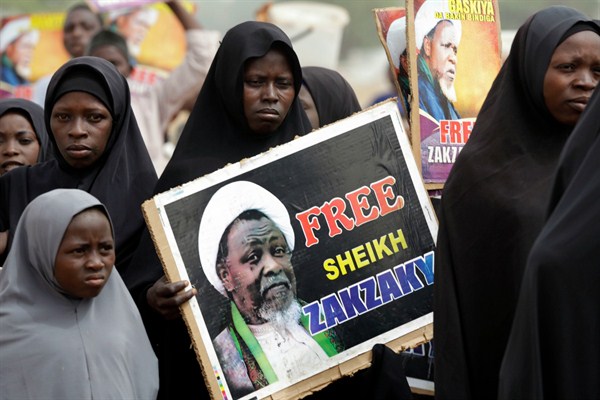On July 26, the Federal High Court in Nigeria’s capital, Abuja, banned the Islamic Movement in Nigeria, or IMN, saying that its activities constitute “terrorism and illegality.” The court order, which the IMN can appeal, came at the attorney general’s request amid repeated clashes in recent weeks between the IMN and security forces.
Although observers have speculated about the possibility of the IMN, Nigeria’s largest Shiite organization, becoming “a second Boko Haram,” it appears unlikely to turn into an underground insurgency. There are still opportunities for the federal government to deescalate the situation, and even if it fails to do so, the IMN’s leadership has incentives to refrain from all-out war against the state.
The present conflict between the IMN and the federal government is embedded within larger cycles of conflict dating to the 1980s, when the IMN’s leader, Ibrahim al-Zakzaky, began to mobilize followers, call for an “Islamic state” in Nigeria and cultivate relations with Iran. He also spent several years in prison during that decade. Over time, al-Zakzaky and his followers became more explicitly Shiite, adopting practices such as the celebration of the Ashoura holiday. That meant shedding some Sunni followers even as they attracted other Muslims who were drawn to the alternative, anti-system identity al-Zakzaky offered.

